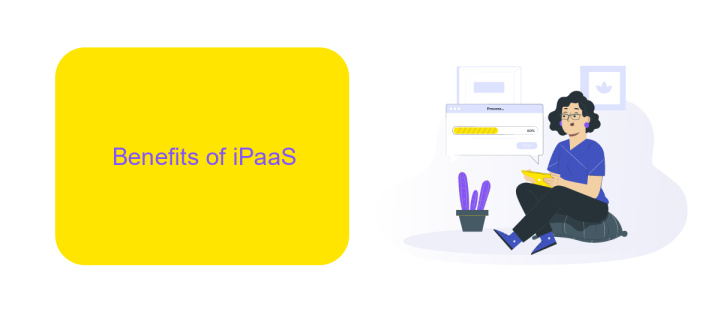Define iPaaS
Integration Platform as a Service (iPaaS) is a cloud-based solution that enables seamless integration of various applications, data, and processes across different environments. By providing a unified platform, iPaaS simplifies complex integration tasks, enhances data flow, and supports real-time connectivity, making it an essential tool for businesses aiming to streamline operations and improve overall efficiency in today's digital landscape.
What is iPaaS?
Integration Platform as a Service (iPaaS) is a cloud-based solution that simplifies the integration of various applications, data sources, and services. It provides a unified platform to connect disparate systems, enabling seamless data flow and communication between them. iPaaS eliminates the need for complex, custom-coded integrations, making it easier for businesses to automate workflows and improve operational efficiency.
- Streamlined integration processes
- Automated data synchronization
- Scalable and flexible architecture
- Real-time data processing
- Enhanced data security and compliance
One notable example of an iPaaS solution is ApiX-Drive, which allows users to effortlessly set up integrations between various applications without any coding knowledge. ApiX-Drive supports a wide range of services and provides an intuitive interface for managing integrations. This platform helps businesses save time and resources by automating repetitive tasks and ensuring data consistency across all connected systems.
Benefits of iPaaS

iPaaS (Integration Platform as a Service) offers numerous benefits that streamline and enhance business operations. One of the primary advantages is the ability to seamlessly integrate various applications and systems, reducing the need for manual data entry and minimizing errors. This leads to improved efficiency and productivity, allowing businesses to focus on their core activities. Additionally, iPaaS platforms often come with pre-built connectors and templates, which simplify the integration process and reduce the time required to connect different systems.
Another significant benefit of iPaaS is its scalability and flexibility. As businesses grow, their integration needs evolve, and iPaaS solutions can easily adapt to these changes. For example, services like ApiX-Drive enable users to set up and manage integrations effortlessly, providing a user-friendly interface and robust support. This ensures that businesses can maintain seamless operations without the need for extensive IT resources. Furthermore, iPaaS platforms often include monitoring and analytics tools, which help organizations gain insights into their integration processes and identify areas for improvement.
Types of iPaaS

Integration Platform as a Service (iPaaS) solutions come in various types, each catering to specific business needs and technical requirements. Understanding these types can help organizations choose the right iPaaS for their integration projects.
- Cloud-based iPaaS: These platforms are hosted on the cloud and offer scalability, flexibility, and ease of access. They are ideal for businesses looking to integrate cloud applications and services.
- Hybrid iPaaS: Combining both on-premises and cloud capabilities, hybrid iPaaS solutions are perfect for organizations that need to integrate legacy systems with modern cloud applications.
- Data-centric iPaaS: Focused on data integration, these platforms are designed to handle large volumes of data, ensuring seamless data flow between different systems and applications.
- API Management iPaaS: These platforms specialize in managing and integrating APIs, making them suitable for businesses that rely heavily on API-based integrations. ApiX-Drive is an example of such a service, offering robust API management and integration capabilities.
Choosing the right type of iPaaS depends on the specific needs of your business, including the nature of your applications, data volume, and integration complexity. Evaluating these factors will help ensure a successful integration strategy.
How to Choose the Right iPaaS

Choosing the right iPaaS (Integration Platform as a Service) is crucial for seamless business operations. The first step is to identify your specific integration needs, such as data synchronization, workflow automation, or real-time data processing. Understanding these requirements will help you narrow down the options.
Next, evaluate the user-friendliness and scalability of the iPaaS solutions available. An intuitive interface can significantly reduce the learning curve, while scalability ensures the platform can grow with your business. Additionally, consider the level of customer support and documentation provided by the vendor.
- Identify integration needs
- Evaluate user-friendliness and scalability
- Check customer support and documentation
- Consider security and compliance
- Review pricing and total cost of ownership
Lastly, it’s beneficial to look into platforms like ApiX-Drive, which offer extensive pre-built connectors and customization options. ApiX-Drive can simplify the integration process, making it easier to connect various applications and automate workflows without extensive coding. By carefully considering these factors, you can choose an iPaaS that best fits your organization’s needs.
Future of iPaaS
The future of iPaaS (Integration Platform as a Service) is poised for significant advancements as businesses increasingly seek seamless integration of their diverse applications and data sources. Emerging technologies such as AI and machine learning are expected to play a pivotal role in automating and optimizing integration processes. This will not only enhance the efficiency of data flow but also provide more intelligent insights and predictive analytics, enabling businesses to make more informed decisions.
Moreover, the rise of low-code and no-code platforms is democratizing the integration landscape, allowing even non-technical users to set up and manage integrations with ease. Services like ApiX-Drive are at the forefront of this revolution, offering user-friendly solutions that simplify the integration process. As organizations continue to adopt cloud-based services and hybrid environments, iPaaS will become an essential tool for ensuring interoperability, scalability, and agility in the ever-evolving digital ecosystem.
FAQ
What is iPaaS?
How does iPaaS work?
What are the benefits of using iPaaS?
Can iPaaS integrate with any application?
How can I get started with iPaaS?
Do you want to achieve your goals in business, career and life faster and better? Do it with ApiX-Drive – a tool that will remove a significant part of the routine from workflows and free up additional time to achieve your goals. Test the capabilities of Apix-Drive for free – see for yourself the effectiveness of the tool.

